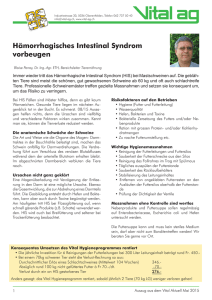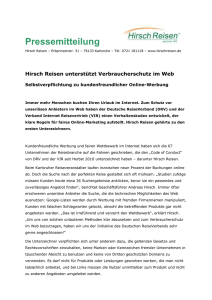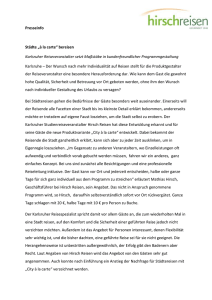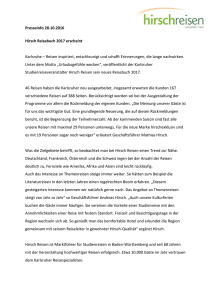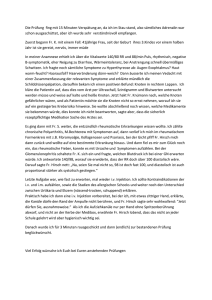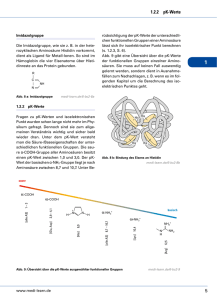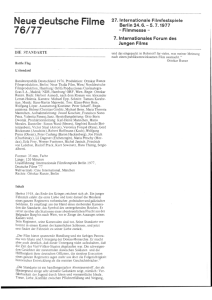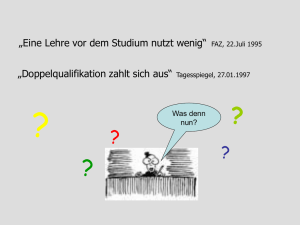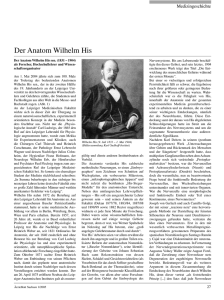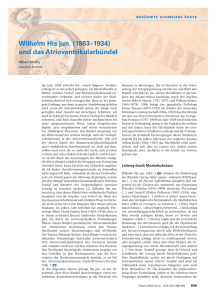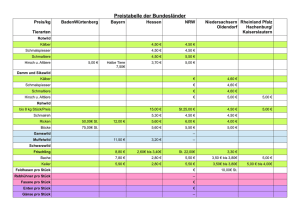Tomas Hirsch
Werbung
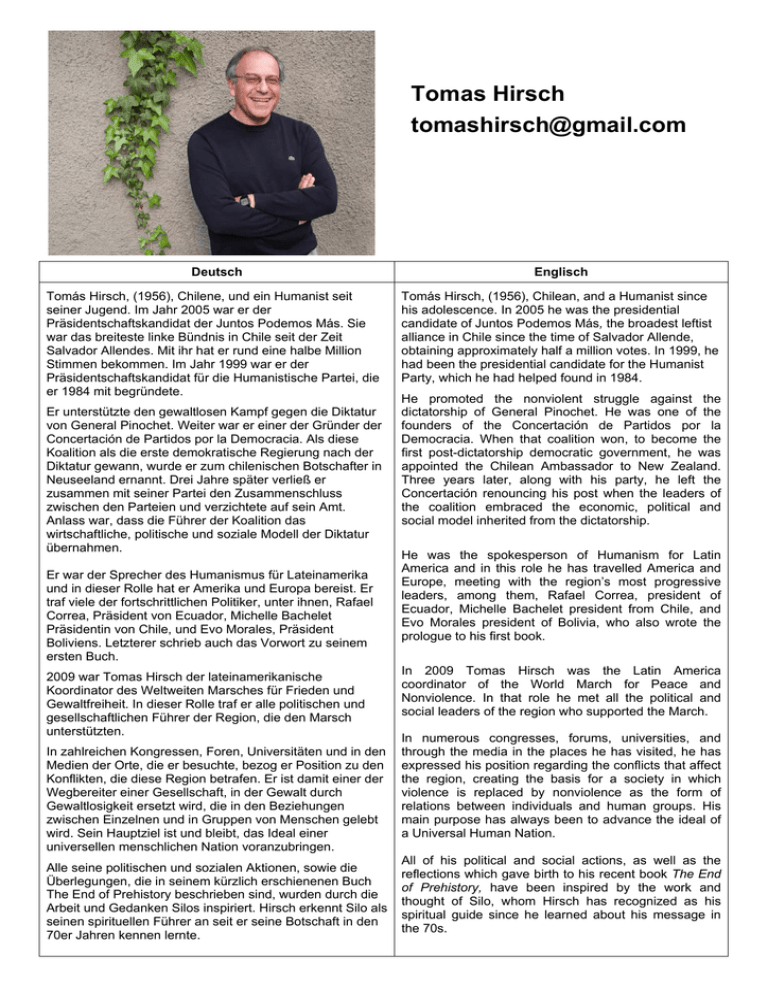
Tomas Hirsch [email protected] Deutsch Tomás Hirsch, (1956), Chilene, und ein Humanist seit seiner Jugend. Im Jahr 2005 war er der Präsidentschaftskandidat der Juntos Podemos Más. Sie war das breiteste linke Bündnis in Chile seit der Zeit Salvador Allendes. Mit ihr hat er rund eine halbe Million Stimmen bekommen. Im Jahr 1999 war er der Präsidentschaftskandidat für die Humanistische Partei, die er 1984 mit begründete. Er unterstützte den gewaltlosen Kampf gegen die Diktatur von General Pinochet. Weiter war er einer der Gründer der Concertación de Partidos por la Democracia. Als diese Koalition als die erste demokratische Regierung nach der Diktatur gewann, wurde er zum chilenischen Botschafter in Neuseeland ernannt. Drei Jahre später verließ er zusammen mit seiner Partei den Zusammenschluss zwischen den Parteien und verzichtete auf sein Amt. Anlass war, dass die Führer der Koalition das wirtschaftliche, politische und soziale Modell der Diktatur übernahmen. Er war der Sprecher des Humanismus für Lateinamerika und in dieser Rolle hat er Amerika und Europa bereist. Er traf viele der fortschrittlichen Politiker, unter ihnen, Rafael Correa, Präsident von Ecuador, Michelle Bachelet Präsidentin von Chile, und Evo Morales, Präsident Boliviens. Letzterer schrieb auch das Vorwort zu seinem ersten Buch. 2009 war Tomas Hirsch der lateinamerikanische Koordinator des Weltweiten Marsches für Frieden und Gewaltfreiheit. In dieser Rolle traf er alle politischen und gesellschaftlichen Führer der Region, die den Marsch unterstützten. In zahlreichen Kongressen, Foren, Universitäten und in den Medien der Orte, die er besuchte, bezog er Position zu den Konflikten, die diese Region betrafen. Er ist damit einer der Wegbereiter einer Gesellschaft, in der Gewalt durch Gewaltlosigkeit ersetzt wird, die in den Beziehungen zwischen Einzelnen und in Gruppen von Menschen gelebt wird. Sein Hauptziel ist und bleibt, das Ideal einer universellen menschlichen Nation voranzubringen. Alle seine politischen und sozialen Aktionen, sowie die Überlegungen, die in seinem kürzlich erschienenen Buch The End of Prehistory beschrieben sind, wurden durch die Arbeit und Gedanken Silos inspiriert. Hirsch erkennt Silo als seinen spirituellen Führer an seit er seine Botschaft in den 70er Jahren kennen lernte. Englisch Tomás Hirsch, (1956), Chilean, and a Humanist since his adolescence. In 2005 he was the presidential candidate of Juntos Podemos Más, the broadest leftist alliance in Chile since the time of Salvador Allende, obtaining approximately half a million votes. In 1999, he had been the presidential candidate for the Humanist Party, which he had helped found in 1984. He promoted the nonviolent struggle against the dictatorship of General Pinochet. He was one of the founders of the Concertación de Partidos por la Democracia. When that coalition won, to become the first post-dictatorship democratic government, he was appointed the Chilean Ambassador to New Zealand. Three years later, along with his party, he left the Concertación renouncing his post when the leaders of the coalition embraced the economic, political and social model inherited from the dictatorship. He was the spokesperson of Humanism for Latin America and in this role he has travelled America and Europe, meeting with the region’s most progressive leaders, among them, Rafael Correa, president of Ecuador, Michelle Bachelet president from Chile, and Evo Morales president of Bolivia, who also wrote the prologue to his first book. In 2009 Tomas Hirsch was the Latin America coordinator of the World March for Peace and Nonviolence. In that role he met all the political and social leaders of the region who supported the March. In numerous congresses, forums, universities, and through the media in the places he has visited, he has expressed his position regarding the conflicts that affect the region, creating the basis for a society in which violence is replaced by nonviolence as the form of relations between individuals and human groups. His main purpose has always been to advance the ideal of a Universal Human Nation. All of his political and social actions, as well as the reflections which gave birth to his recent book The End of Prehistory, have been inspired by the work and thought of Silo, whom Hirsch has recognized as his spiritual guide since he learned about his message in the 70s.

